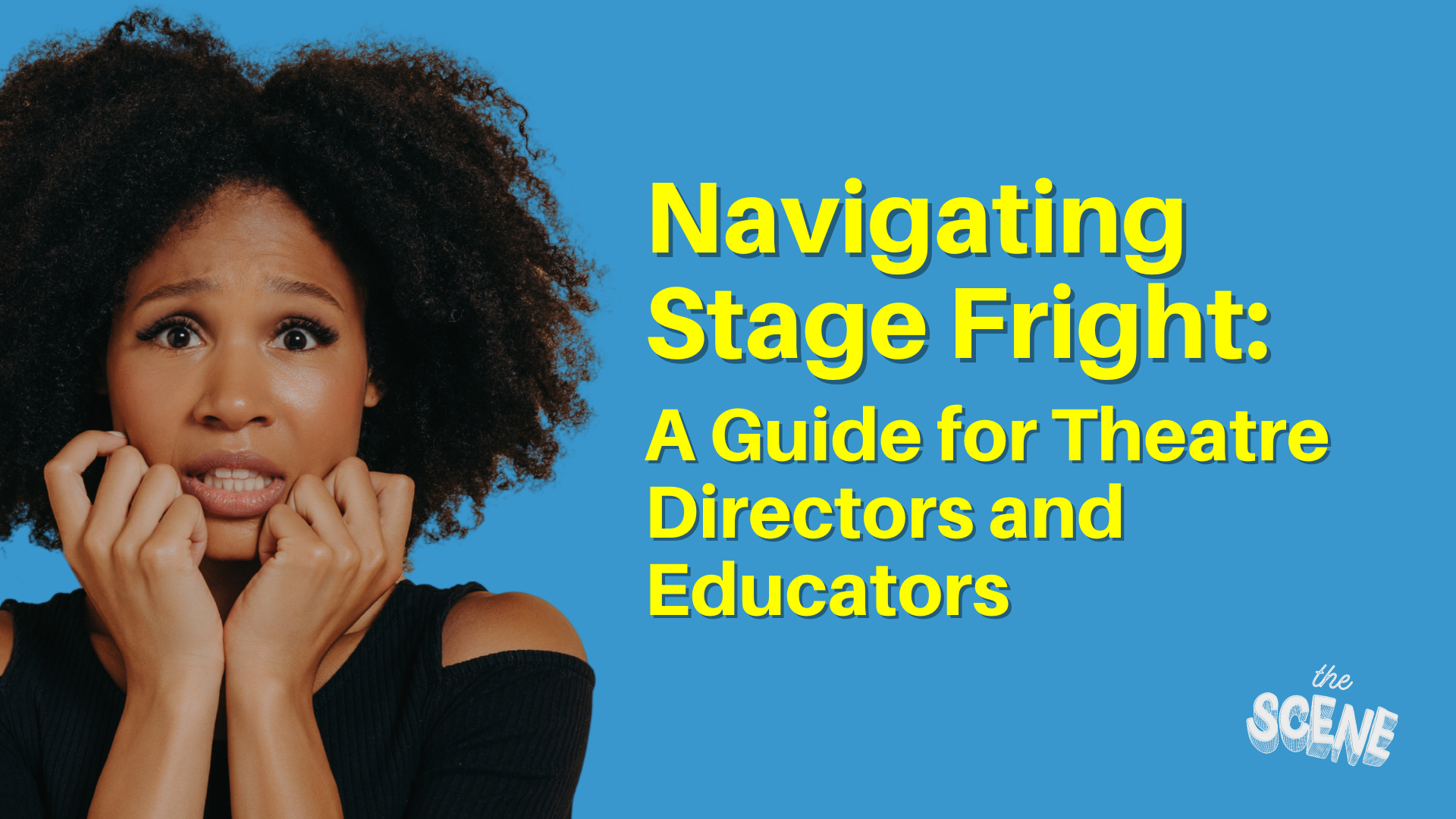In the dynamic world of theatre, stage fright often emerges as a common challenge among many performers. What starts in the mind can quickly manifest in the body, creating any number of reactions, including butterflies in the stomach, a racing heart, or even an overwhelming sense of dread. The good news is that there are effective strategies to help performers overcome these jitters and shine in the spotlight. In this article, we aim to equip theatre directors and educators with an array of strategies and exercises designed to assist their performers in overcoming stage fright and unlocking their full potential on stage.
Demystifying Stage Fright
It’s crucial to understand from the start that stage fright, or performance anxiety, is a common experience among performers. What stems from the fear of judgment or failure is actually a normal physiological and psychological response. Recognizing stage fright as a normal part of the performing process is the first step in effectively addressing it.
Strategies and Exercises for Overcoming Stage Fright
Breathing Techniques and Relaxation
- Diaphragmatic Breathing: Teach the practice of deep, diaphragmatic breathing. This practice involves inhaling deeply through the nose, allowing the abdomen to expand, and exhaling slowly and calmly. This not only helps calm nerves, but in vocal projection as well. Encourage your actors to practice these exercises regularly, especially before rehearsals and performances.
- Visualization Techniques: Combining breathing exercises with visualization can enhance relaxation. Guide performers through visualization exercises. Have them imagine their success on stage, focusing on the details of a positive performance. This technique helps build confidence and reduce anxiety.
Cognitive Approaches
- Challenging Negative Thoughts: Practice reality testing by questioning the validity of their fears and focusing on positive outcomes instead of worst-case scenarios. Not only will this help reduce anxiety, but it will make for better actors who are actively listening to the other performers while on stage.
- Positive Self-Talk: Encourage the replacement of negative thoughts with positive affirmations. Phrases like “I am capable” or “I am ready” can be transformative.
Physical Strategies
- Progressive Muscle Relaxation: This technique, which involves tensing and relaxing different muscle groups, can be taught to help reduce physical symptoms of anxiety. It’s also a great way to help performers fall asleep, especially when they can get their brain to turn off.
- Dynamic Warm-Ups: Incorporating movement-based warm-ups before rehearsals and performances can help release physical tension and excess energy, preparing the body for the performance.
Exposure and Experience
- Gradual Exposure: Gradually introduce your actors to performing. Start with low-pressure situations and slowly increase the performance experience over time. Everything from increasing the audience size to the complexity of the role can help build a performer’s self-confidence and reduce anxiety.
- Simulated Performances: Arranging mock performances can simulate the experience of a real show, allowing performers to acclimate to being in front of an audience.
Mindfulness and Grounding Practices
- Mindfulness Meditation: Introducing mindfulness exercises can aid actors in focusing on the present moment, thus managing overwhelming emotions more effectively.
- Grounding Techniques: Directors can teach techniques such as focusing on physical sensations (e.g., feet on the ground) to help performers remain anchored in the present.
Creating a Supportive Environment
- Foster a Positive Atmosphere: Create and foster a rehearsal environment where mistakes are seen as opportunities for growth. This not only reduces the pressure to be perfect but also helps performers feel more comfortable taking risks.
- Open Dialogue: Leading open discussions about stage fright can help create an environment of understanding and support among your cast and crew. Since most performers have experienced performance anxiety at some point in their past, the act of sharing their personal experience in managing and overcoming stage fright can be extremely helpful.
- Peer Mentoring: Pairing inexperienced performers with their more experienced peers can facilitate the sharing of experiences and coping strategies, fostering a sense of camaraderie.
- Encourage Peer Support: Cultivate a sense of camaraderie among your performers. When peers support each other, it can significantly lessen the feelings of isolation that often accompany stage fright.
Practical Techniques
- Preparation and Practice: There’s no substitute for being well-prepared. Ensure performers understand their material thoroughly and have ample time to rehearse. Confidence often grows with familiarity.
- Focus on the Process, Not Just the Performance: Help actors understand that theatre is not just about the final show but also the journey. Celebrate their progress throughout rehearsals.
Addressing Individual Needs
- One-on-One Sessions: Some performers may benefit from individual attention. Offer to work with them privately to address specific concerns.
- Customized Strategies: Understand that what works for one person may not work for another. Be open to exploring different techniques and strategies.
Through the integration of these strategies and exercises, theatre directors and educators can guide their performers to not only confront the spotlight but to embrace and thrive in it.
The Path Forward:
Overcoming and mastering stage fright is about empowering performers with tools to manage their anxiety rather than seeking its complete eradication. Theatre educators and directors play a pivotal role in this process, extending their influence beyond technical training to nurturing emotional resilience and confidence.
By addressing stage fright head-on with compassion and practical strategies, performers not only overcome their fears but also embrace the joy and exhilaration of performance. Remember, the stage is not just a platform for performance but a space for personal growth and self-discovery.









